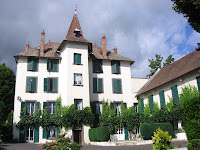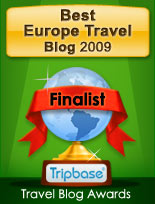 Christmas market season is officially underway. Mulled wine, cookies, cakes and breads, and seasonal decorations galore will be available for purchase and for filling one with the holiday spirit in cities all over Europe from now until after the New Year. I decided early on that as long as I had a home base in Brussels I might as well make a point to visit as many such markets as I could. Who knows when or if I will ever be so strategically placed again? And really, who can turn down multiple tastings of mulled wine and cookies? So began my quest for Christmas overload. First stop: Lille, France.
Christmas market season is officially underway. Mulled wine, cookies, cakes and breads, and seasonal decorations galore will be available for purchase and for filling one with the holiday spirit in cities all over Europe from now until after the New Year. I decided early on that as long as I had a home base in Brussels I might as well make a point to visit as many such markets as I could. Who knows when or if I will ever be so strategically placed again? And really, who can turn down multiple tastings of mulled wine and cookies? So began my quest for Christmas overload. First stop: Lille, France. Lille is an easy 30 minute Eurostar ride away from Brussels. A former industrial center that is known for being a bit rough around the edges, the city has worked hard in recent years to clean up its image. While Lille has what is quite possibly the ugliest cathedral in all of Europe (what happened to this thing?), it also has a nice old town and a lot of high-end shopping. We found the Christmas market in the Place Charles de Gaulle lined with little wooden stands and bustling with shoppers. A good mix of Christmas decorations, gift possibilities and edible treats abounded. Between me and my friend we bought an amber ring, a sterling silver ring, a colorful star-shaped paper lantern, a sign for the kitchen that says la cuisine, and an enormous warm beignet stuffed with whipped cream that didn’t last very long in our hungry hands.
Lille is an easy 30 minute Eurostar ride away from Brussels. A former industrial center that is known for being a bit rough around the edges, the city has worked hard in recent years to clean up its image. While Lille has what is quite possibly the ugliest cathedral in all of Europe (what happened to this thing?), it also has a nice old town and a lot of high-end shopping. We found the Christmas market in the Place Charles de Gaulle lined with little wooden stands and bustling with shoppers. A good mix of Christmas decorations, gift possibilities and edible treats abounded. Between me and my friend we bought an amber ring, a sterling silver ring, a colorful star-shaped paper lantern, a sign for the kitchen that says la cuisine, and an enormous warm beignet stuffed with whipped cream that didn’t last very long in our hungry hands.I went to the Lille Christmas market hoping to return to Brussels bearing Christmasy stuff for my apartment. A few ornaments for my little store-bought Charlie Brown Christmas tree, an advent calendar and maybe a hand-carved nativity scene if I found just the right one. But we came home with none of those things. There just wasn’t anything along those lines that caught my eye enough to make me part with my hard-earned euros. The market was well worth the trip, and I enjoyed visiting a French city I had never visited before, but I’ll have to hope that another European Christmas market will have the Christmas paraphernalia I seek. Up next: Cologne, Germany.












































